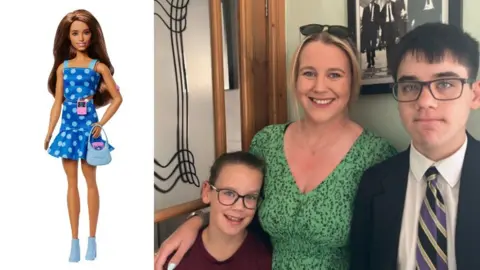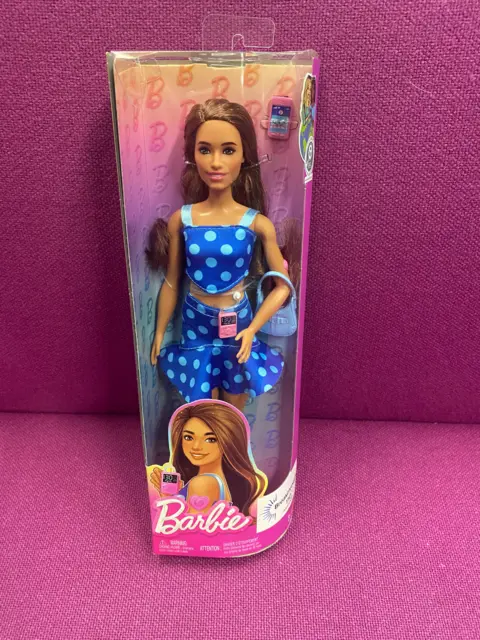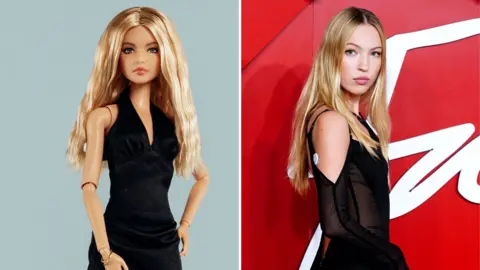Barbie with diabetes will 'break down stigma'
 Mattel/PA Media/BBC
Mattel/PA Media/BBCThe mother of a teenager with type 1 diabetes says the latest addition to the Barbie range of dolls will help children understand more about the condition.
The new doll was launched last week by Lila Moss, a 22-year-old model who has diabetes, as part of a drive to increase representation by toy manufacturer Mattel.
It features a glucose monitor and insulin pump, along with a blue polka-dot top and skirt. The colour blue and circle print are used around the world to represent diabetes awareness.
Hollie, from Cleethorpes, whose 14-year-old son Will lives with the condition, said it was "breaking down the stigma" around diabetes.
"Will for a long time didn't want a pod or a sensor because it was a visible thing that everybody would instantly know," Hollie said.
However, the latest addition to the Barbie range was a positive step, in a similar way to Barbie dolls that use wheelchairs, she added.
"It's inclusive and I think it's a good thing."

Will said he was now quite used to managing his diabetes and having to "work out my carbs before I have stuff".
Talking about the doll, he said it was "nice to be included", though when asked if he would play with one, he replied: "I don't think so."
Will's younger sister, Alice, 8, said children who played with the doll "could pretend and maybe understand it and discover more about diabetes".
"It's really important," she added.
The US toy giant had previously faced criticism that the traditional Barbie was not representative of most women.
In recent years, the firm has created dolls with a hearing aid, a prosthetic limb and a wheelchair.
The latest addition has also been welcomed by support groups and health professionals.
Lionel Curtis, from the Hull and District Diabetes Support Group, who has lived with the condition himself for more than 30 years, said: "I think the idea of this doll is absolutely brilliant for children.
Mr Curtis said support and education were "essential", adding: "I think this is a great leap forward."
 PA Media
PA MediaDebbie Hicks, who developed the diabetes specialist nursing service in Hull, was diagnosed with type 1 diabetes in 1973, aged 12.
Talking about its impact, she said: "Never knowing anybody with diabetes it was a complete shock for all of the family.
"It wasn't something we had ever come across – it was a total new way of life that both myself and my family had to adopt.
"You wouldn't believe that, at 12, I was using a glass syringe and needle that had to be sharpened once a week."
Commenting on the doll, she said that although technology for managing the condition had greatly improved over the years, anything that helped to further raise awareness was very welcome.
Listen to highlights from Lincolnshire on BBC Sounds, watch the latest episode of Look North or tell us about a story you think we should be covering here.
Download the BBC News app from the App Store for iPhone and iPad or Google Play for Android devices
